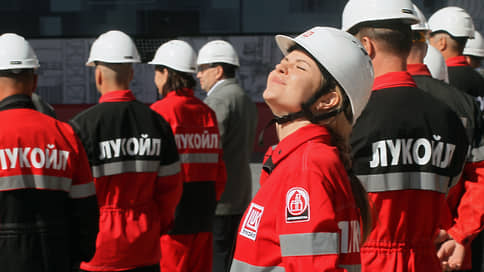LUKOIL is left without Nadezhda – Newspaper Kommersant No. 188 (7389) dated 10/11/2022
[ad_1]

As it became known to Kommersant, LUKOIL, which has been seeking a license for the Nadezhda site for six years, will not receive it. According to Kommersant, this decision was made by the government, the reasons are still unknown. From the very beginning, the company faced difficulties in trying to obtain a license for Nadezhda. Thus, the authorities dragged out the process due to environmental issues, although LUKOIL, the only Russian oil company in the region, has been developing Baltic assets for a long time, and there were no particular complaints about it.
The government refused to grant a license to LUKOIL to develop the Nadezhda site in the Baltic Sea, Kommersant’s sources in the oil industry told Kommersant. The reasons for this decision are not specified. The Ministry of Natural Resources recommended Kommersant to contact the government. The secretariat of Deputy Prime Minister Victoria Abramchenko, who oversees subsoil use, as well as LUKOIL declined to comment.
LUKOIL is the only subsoil user on the Russian Baltic shelf and has been producing oil since 2004. The structure of LUKOIL-Kaliningradmorneft is developing the Kravtsovskoye (D6), D33 and D41 fields and produced about 430 thousand tons of oil in 2021. LUKOIL itself is extremely interested in replenishing the resource base as its main fields in Russia, which are located in Western Siberia, are depleted. Moreover, the oil company has long shown interest in offshore areas, but almost all promising licenses in the Arctic seas were divided between Rosneft and Gazprom structures.
LUKOIL has been seeking a license for Nadezhda since 2016, first offering to raffle it at an auction. There were no other contenders for Nadezhda, but the auction was never held. Hope is located within 12 miles of the coast, in the so-called territorial sea. Formally, this area does not belong to the continental shelf, to which only state-owned companies have access, but there was no clear practice of allocating areas in the territorial sea. In 2020, the rules for providing such areas, which are not offshore, for geological study were nevertheless approved by the government. As a result, LUKOIL could obtain a license for it without holding an auction.
In 2021, the Ministry of Natural Resources sent LUKOIL’s draft application for Nadezhda to the government, which was supposed to issue a license. Such an application is legally approved by the FSB, the Ministry of Defense, the Ministry of Energy and the Ministry of Natural Resources, including the latter giving an opinion on the presence of specially protected natural areas within the boundaries of the site. Already after sending the application to the government, LUKOIL faced new difficulties: according to Kommersant, the company had to prove that exploration of the site did not pose a danger to the Curonian Spit National Park. The Ministry of Natural Resources even prepared an order to establish the boundaries of the buffer zone of the Curonian Spit National Park “along the border with the Baltic Sea”, thus Nadezhda did not fall within the boundaries of the buffer zone. In this regard, the government’s decision not to issue a license looks unexpected.
LUKOIL is the only Russian company producing oil in the Baltic Sea, and in compliance with high environmental safety standards, recalls Mikhail Grigoriev, head of the Gekon consulting center. The fields of the Kaliningrad region and the adjacent waters of the Baltic Sea, although they have high-quality oil, are small in size, which requires the rapid commissioning of new facilities, especially since the technologies have been polished for years, he notes.
The expert notes that the EU embargo may affect oil exports from the Baltic, but we can return to the discussion of the possibility of building a mini-refinery in Kaliningrad to partially supply the isolated exclave and ensure its energy security. In this case, it is necessary to provide the plant with raw materials for a long time, which only LUKOIL can do.
[ad_2]
Source link





